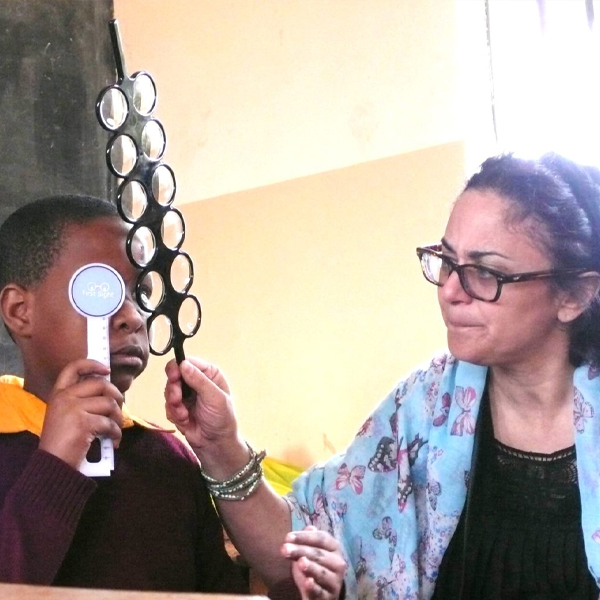In many underdeveloped regions of Africa, a silent crisis is impacting the lives of millions—an alarming rise in preventable eye problems. This crisis, driven by malnutrition and a lack of awareness, threatens the futures of children and adults alike, creating barriers to education, employment, and overall quality of life.
The Role of Malnutrition in Eye Health
Malnutrition is a critical issue in many parts of Africa, where access to nutritious food is limited. Essential nutrients like vitamins A, C, E, and minerals such as zinc are vital for maintaining healthy vision. However, in communities where food insecurity is prevalent, these nutrients are often lacking, leading to a host of eye problems.
Vitamin A deficiency is particularly concerning. This essential nutrient is crucial for maintaining the health of the retina and ensuring good vision in low light. A deficiency can lead to night blindness and, in severe cases, can cause irreversible blindness. In fact, vitamin A deficiency is one of the leading causes of preventable blindness in children across Africa.
Other nutritional deficiencies can lead to conditions like cataracts, macular degeneration, and dry eye syndrome, all of which can significantly impair vision. The lack of these vital nutrients, coupled with the challenges of accessing healthcare, means that many people suffer from preventable and treatable eye conditions.
Ignorance and the Stigma of Eye Health
In addition to malnutrition, a significant barrier to eye health in Africa is the lack of awareness and education. Many people in rural and underdeveloped areas are unaware of the importance of eye care or the role that nutrition plays in maintaining vision. This ignorance often leads to the belief that poor vision is a natural part of aging or a condition that cannot be treated.
Cultural stigmas and myths surrounding eye health further exacerbate the problem. In some communities, wearing glasses is seen as a sign of weakness or disability, discouraging individuals from seeking the help they need. Additionally, the lack of access to eye care services in remote areas means that even those who recognize the need for help often go without treatment.
First Sight’s Approach to Combating the Crisis
At First Sight, we recognize the urgent need to address both the nutritional and educational challenges that contribute to the growing eye health crisis in Africa. Our approach is comprehensive, targeting the root causes of these issues through a combination of direct intervention and community empowerment.
– Nutritional Programs: We work with local communities to provide access to essential vitamins and minerals that support eye health. By distributing supplements and improving access to nutritious foods, we aim to prevent the onset of vision problems caused by malnutrition.
– Educational Outreach: Education is a powerful tool in the fight against preventable blindness. First Sight conducts workshops and awareness campaigns to educate communities about the importance of eye health, the impact of nutrition, and the availability of treatment options. By dispelling myths and providing accurate information, we empower individuals to take control of their eye health.
– Accessible Eye Care: First Sight’s mobile clinics bring eye care services directly to those who need them most. In remote and underserved areas, these clinics provide eye exams, distribute glasses, and offer treatments that can prevent or correct vision problems. Our goal is to ensure that everyone, regardless of location, has access to the eye care they need.
How You Can Help
The fight against preventable blindness in Africa requires a collective effort. Here’s how you can make a difference:
– Donate: Your contributions help fund nutritional programs, educational outreach, and mobile clinics that bring essential eye care to underserved communities.
– Spread the Word: Raise awareness about the link between nutrition and eye health by sharing information and resources within your networks.
– Volunteer: Whether on the ground or remotely, volunteering with First Sight allows you to directly impact the lives of those in need.
Conclusion
The rise of eye problems due to malnutrition and ignorance in Africa is a crisis that cannot be ignored. By addressing these challenges head-on, we can prevent countless cases of blindness and vision impairment, allowing individuals to lead fuller, healthier lives. At First Sight, we are committed to making this vision a reality, but we need your help to reach those in need.
Join us at [First Sight](https://firstsight.org) in our mission to protect and restore vision across Africa. Together, we can create a future where everyone has the opportunity to see the world clearly.
This blog post aims to shed light on the critical issue of eye health in underdeveloped regions of Africa, emphasizing the importance of nutrition, education, and accessible care in combating this growing crisis.


